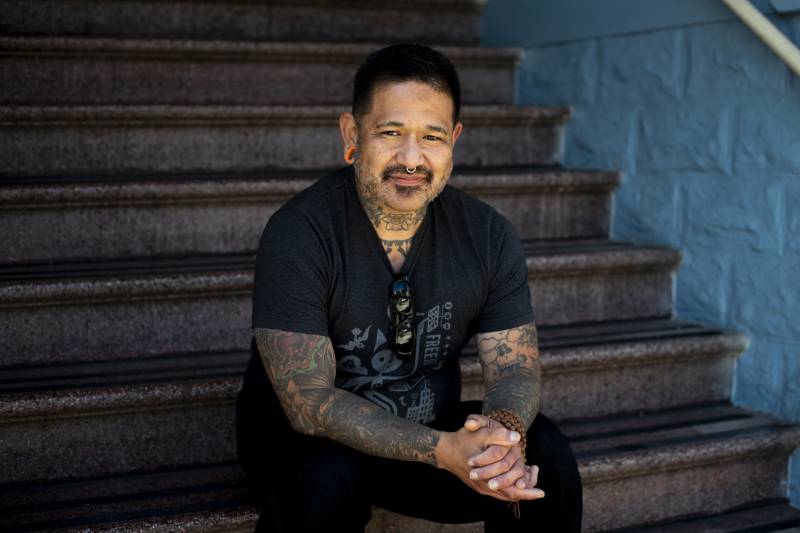The suit argues the city is “punishing residents who have nowhere to go” in violation of the Eighth Amendment of the U.S. Constitution, which prohibits cruel and unusual punishment. The argument draws on the Ninth Circuit’s 2019 decision in the Martin v. Boise case, which found that people who are homeless can’t be penalized for sleeping on public property, if there is no alternative offered.
The suit also alleges violations of the Fourth Amendment’s protection against unreasonable searches and seizures, and the 14th Amendment’s due process requirement.
“They would come out at, like, four in the morning, five in the morning. Usually when you’re in the dead of sleep and it’s very, very cold,” said Toro Castaño, 51, one of the plaintiffs in the suit. He was living on the streets of the Castro for two years, until the fall of 2021. “It was very traumatic because it’s very cold outside and a lot of things they’re taking are warm clothes, warm jackets, blankets, things that you need just to survive.”
Castaño had his belongings taken from him by the city four times during the pandemic, according to the complaint, and settled a claim against the city for $9,000 after his property was destroyed. He now lives in a co-op in the city.
While Castaño was unhoused, he said he was asked to move nearly every day. “It makes you very sleep-deprived, makes it difficult to make decisions, to make appointments, to try to look for work or try to look for jobs — basically to function,” he said.
Jennifer Friedenbach, executive director of the Coalition on Homelessness, said the goal of the lawsuit is to stop sweeps, which she said only perpetuate homelessness. “When the city takes folks’ IDs, their cellphones, the things that they need in order to really navigate a very complicated route off the streets, that ends up extending their homelessness,” she said, explaining that people can lose contact with social service providers and miss out on housing opportunities. “What we hear from folks again and again is they feel like they’re starting from scratch.”
She argues the city’s enforcement resources would be better spent on housing and treatment programs. “It’s in everyone’s interest to really, truly invest in the permanent solutions we need to solve homelessness,” she said.
The suit names the city and county of San Francisco; Mayor London Breed; Director of the Healthy Streets Operation Center Sam Dodge; and several city departments as defendants.
Jen Kwart, director of communications for the city attorney’s office, said in a statement, “The City is acutely focused on expanding our temporary shelter and permanent housing options to alleviate our homelessness crisis. Once we are served with the lawsuit, we will review the complaint and respond in court.”
The city’s latest point-in-time count found a total of about 7,700 people living on the streets or in shelters, a 3.5% decrease since 2019. But, Latinx homelessness spiked 55% and Black people continue to be overrepresented among the unhoused, at 38% of the total homeless population compared to 6% of the general population.
Based on the new count, officials now estimate that as many as 20,000 people experience homelessness in a full year.
From 2015 to 2022, the city built just 2,067 units of very-low-income housing, just a third of its goal, while far exceeding its goal for market rate housing, according to the city’s 2020 housing inventory.
Emily Cohen, deputy director of communications for the Department of Homelessness and Supportive Housing, points out that since 2017, the city has nearly doubled the number of housing units dedicated to people leaving homelessness.
The lawyers for the plaintiffs have filed a motion for a preliminary injunction, asking the court to ban the city from conducting sweeps or otherwise enforcing ordinances that punish sleeping on public property while the suit proceeds.
Castaño said he hopes the suit leads to more affordable housing and better conditions for people experiencing homelessness. “I’m hoping that people on the street will be protected a little more, that the things won’t be taken that they used to survive and to stay warm,” he said. “And there’s a little more compassion.”

